For me, 2009 was the year of Europe Central – not so much because I would wind up reading, in late November, William T. Vollmann‘s large novel of that name, but because a couple of chance encounters back in January (Bohumil Hrabal‘s I Served the King of England and Jonathan Littell’s The Kindly Ones (reviewed here)) set me on a path toward it. In the intervening months, I found myself traipsing back and forth between literary Berlin and literary Moscow and losing myself in the territories in between.
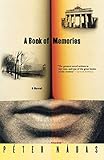 My very favorite of the books I encountered during these peregrinations – indeed, the best book I read all year – was A Book of Memories, by the Hungarian master Péter Nádas. A glib way of describing this indescribable novel would be to say that it is to postmodernism what The Magic Mountain is to modernism – rigorous, comprehensive…a classic. However, the author who kept coming to mind as I read was Harold Brodkey. Nádas’ psychological and phenomenological insights are, like those of Brodkey’s stories, microscopically acute. Formally, however, A Book of Memories offers more excitement. The novel unfolds like a game of three-card monte, giving us several narrators whose gradual convergence seems to encompass the entire aesthetic and political history of Central Europe in the 20th Century.
My very favorite of the books I encountered during these peregrinations – indeed, the best book I read all year – was A Book of Memories, by the Hungarian master Péter Nádas. A glib way of describing this indescribable novel would be to say that it is to postmodernism what The Magic Mountain is to modernism – rigorous, comprehensive…a classic. However, the author who kept coming to mind as I read was Harold Brodkey. Nádas’ psychological and phenomenological insights are, like those of Brodkey’s stories, microscopically acute. Formally, however, A Book of Memories offers more excitement. The novel unfolds like a game of three-card monte, giving us several narrators whose gradual convergence seems to encompass the entire aesthetic and political history of Central Europe in the 20th Century.

 A close second would have to be The Foundation Pit, by the early-Soviet-era writer Andrey Platonov. This slim novel reckons the cost of the Stalinist industrial program, but in the process reveals an ecstatic vision of the human soul. I agree with Edwin Frank of NYRB Classics: Platonov’s voice is as arresting as Kafka‘s. It is also tender, and weirdly touching. And Platonov inspired me to read (finally) Life and Fate, the sweeping World War II saga by his good friend Vasily Grossman. This novel, like some of Platonov’s work, was suppressed by Soviet censors, and as a consequence was never properly edited. That shows, I think, in the sketchiness of some of the book’s secondary characters and plots. But at its frequent best – in its depiction of German death camps; in its attention to the trials of Viktor Shtrum and his family; and in an early, haunting letter from Viktor’s mother – Life and Fate approaches the depth of its models, Tolstoy and Chekhov.
A close second would have to be The Foundation Pit, by the early-Soviet-era writer Andrey Platonov. This slim novel reckons the cost of the Stalinist industrial program, but in the process reveals an ecstatic vision of the human soul. I agree with Edwin Frank of NYRB Classics: Platonov’s voice is as arresting as Kafka‘s. It is also tender, and weirdly touching. And Platonov inspired me to read (finally) Life and Fate, the sweeping World War II saga by his good friend Vasily Grossman. This novel, like some of Platonov’s work, was suppressed by Soviet censors, and as a consequence was never properly edited. That shows, I think, in the sketchiness of some of the book’s secondary characters and plots. But at its frequent best – in its depiction of German death camps; in its attention to the trials of Viktor Shtrum and his family; and in an early, haunting letter from Viktor’s mother – Life and Fate approaches the depth of its models, Tolstoy and Chekhov.
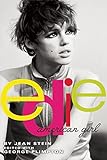
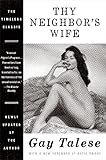 The two finest works of nonfiction I read this year, by contrast, had a distinctly American flavor: Gay Talese‘s Thy Neighbor’s Wife and Edie, a riveting oral history of Edie Sedgwick, edited by Jean Stein. Each is in the neighborhood of 500 pages, but reads with the propulsion of an intellectual whodunit. Taken together, they create a panorama of the transformative years between World War II and Vietnam, whose upheavals we’re still living down today. Come for the titillation; stay for the education.
The two finest works of nonfiction I read this year, by contrast, had a distinctly American flavor: Gay Talese‘s Thy Neighbor’s Wife and Edie, a riveting oral history of Edie Sedgwick, edited by Jean Stein. Each is in the neighborhood of 500 pages, but reads with the propulsion of an intellectual whodunit. Taken together, they create a panorama of the transformative years between World War II and Vietnam, whose upheavals we’re still living down today. Come for the titillation; stay for the education.
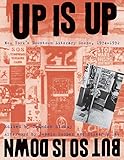
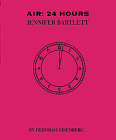 Amid these longer works, it was a relief to have poetry collections to dip into. My favorites were Frederick Seidel‘s Ooga-Booga and John Berryman‘s The Dream Songs, both of which I wrote about here. (On second thought, where these two poets are concerned, maybe relief isn’t quite the right word.) Similarly, a couple of coffeetable books offered piecemeal inspiration. Air : 24 Hours, a remarkable monograph on/interview with the painter Jennifer Bartlett, is freshly minted MacArthur Genius Deborah Eisenberg‘s My Dinner With Andre. I also heartily recommend Up is Up, But So is Down, an anthology of Downtown New York literature from the 1970s and 1980s. Reproductions of flyers and zines adorn this volume, expertly compiled by Brandon Stosuy. Come for the images; stay for the writing.
Amid these longer works, it was a relief to have poetry collections to dip into. My favorites were Frederick Seidel‘s Ooga-Booga and John Berryman‘s The Dream Songs, both of which I wrote about here. (On second thought, where these two poets are concerned, maybe relief isn’t quite the right word.) Similarly, a couple of coffeetable books offered piecemeal inspiration. Air : 24 Hours, a remarkable monograph on/interview with the painter Jennifer Bartlett, is freshly minted MacArthur Genius Deborah Eisenberg‘s My Dinner With Andre. I also heartily recommend Up is Up, But So is Down, an anthology of Downtown New York literature from the 1970s and 1980s. Reproductions of flyers and zines adorn this volume, expertly compiled by Brandon Stosuy. Come for the images; stay for the writing.
A couple of other novels I loved this year were Saul Bellow‘s Humboldt’s Gift and Virginia Woolf‘s The Waves. Each, in my read, unraveled at the end, and so didn’t quite stand with Nádas (or Herzog, or Mrs. Dalloway). But each reached rare pinnacles of perception and beauty, and I’m always pleased to spend time in the company of these writers.
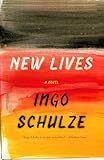
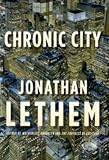 The best new books I read were Jonathan Lethem‘s Chronic City and Ingo Schulze‘s New Lives. One of the first things people notice about Lethem is his skylarking prose, but in this most recent novel, a note of deeper irony (the kind born of pain; one wants to call it European, or maybe Bellovian) disciplines the sentences. I look forward to seeing where Lethem goes next. The East German setting of New Lives, and its uroboric epistolary structure – starting late in the story, slowly filling in the background – made for slow going at first, but the ethical intensity of its restaging of Faust has haunted me since I read it.
The best new books I read were Jonathan Lethem‘s Chronic City and Ingo Schulze‘s New Lives. One of the first things people notice about Lethem is his skylarking prose, but in this most recent novel, a note of deeper irony (the kind born of pain; one wants to call it European, or maybe Bellovian) disciplines the sentences. I look forward to seeing where Lethem goes next. The East German setting of New Lives, and its uroboric epistolary structure – starting late in the story, slowly filling in the background – made for slow going at first, but the ethical intensity of its restaging of Faust has haunted me since I read it.
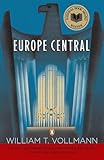 And then there was Europe Central, about which more anon. I’m not sure I can recommend it, anymore than I was sure I could recommend Joseph McElroy‘s Women and Men last year. I haven’t even decided if I think Europe Central is a good book. But it swallowed me by slow degrees, and hasn’t quite let go.
And then there was Europe Central, about which more anon. I’m not sure I can recommend it, anymore than I was sure I could recommend Joseph McElroy‘s Women and Men last year. I haven’t even decided if I think Europe Central is a good book. But it swallowed me by slow degrees, and hasn’t quite let go.
There are many, many more amazing books I’d like to write about here: Janet Malcolm‘s book on Chekhov; McElroy’s Lookout Cartridge; Rabbit Redux, Running Dog, Dog Soldiers; The Book of Daniel, Daniel Deronda… In fact, looking forward to “A Year in Reading” has begun to exert a formal pressure on my reading list, encouraging me to bypass the ephemeral in search of books I might passionately recommend. Fully half of what I read this year blew my mind, and I look forward to some future “Year in Reading” entry when I have 52 masterpieces to endorse. Imagine: one great book a week. For now, though, mindful that your hunger to read a 10,000 word post about what I read is probably even less keen than mine is to write it, I’ll leave you with these titles, and wishes for great reading in 2010.








